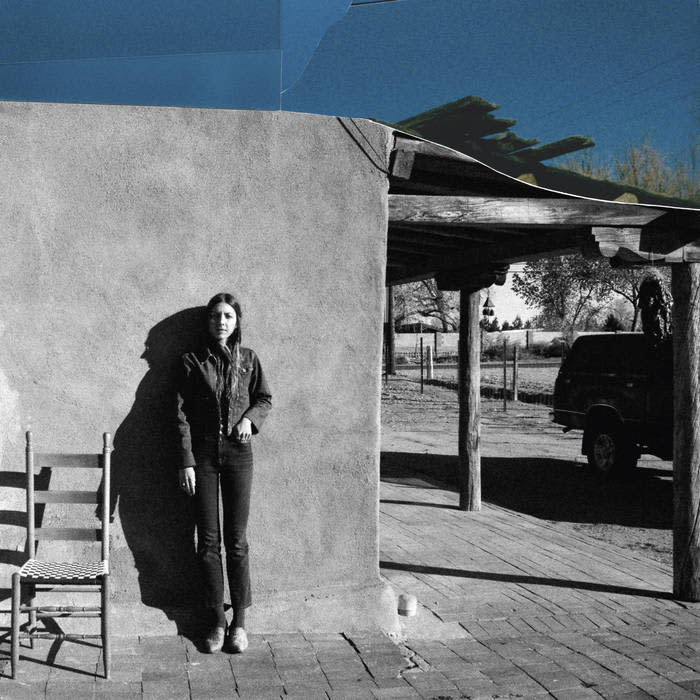Itasca – Spring
Only 1 left in stock
$9.00
What our staff has to say: “One of my favorite folk albums of the past 10 years. Laurel Canyon styled folk. Joni Mitchell – breezy afternoon. Heavy southwest vibe. Bitchin Bajas & Gun Outfit crew in the band. Not much better than Kayla Cohen’s ‘Itasca’ for me.” – Alex
Itasca’s Kayla Cohen wrote the anticipated follow-up to her acclaimed 2016 album Open to Chance in a century-old adobe house in rural New Mexico. Inspired by the landscape and history of the Four Corners region, the sublime Spring—its title summoning both season and scarce local water sources—dowses a devotional path to high desert headwaters. Featuring contributions from Chris Cohen, Cooper Crain (Bitchin’ Bajas), James Elkington, and members of Gun Outfit and Sun Araw, Spring contains Cohen’s most quietly dazzling and self-assured set of songs to date. With color inner sleeve, lyrics, and high-res DL code.
*
In the fall of 2017, a year after the release of her acclaimed 2016 album Open to Chance, Kayla Cohen, the songwriter and guitarist who records and performs as Itasca, left her home in Los Angeles to live and write for two seasons in a century-old adobe house in rural New Mexico (pictured on the album cover). More urgent escape than fanciful escapade, the move from one Southwestern desert to another resulted from a set of dire circumstances, both personal and societal, not least of which was the sense, shared by many, that a sinister cabal of impaired lunatics had irredeemably poisoned the already sour well of our American discourse. She decided to drop out and dive deeper—hiking into the mountains, through fragrant juniper and piñon forests, past groves of golden cottonwoods, to the source of what she calls in the song “Cornsilk”—with a nod to poet Clayton Eshleman—“the canyoned river.” Inspired by the landscape and history of the Four Corners region, the resulting album, the sublime Spring—its title summoning both season and scarce local water sources—dowses a devotional path to high desert headwaters.
Cohen followed some heavy footprints across the Sandia and Sangre de Cristo ranges. In the long American tradition of lighting out for the territories, many artists, particularly visual artists—including Terry Allen, Georgia O’Keefe, Agnes Martin, Walter de Maria, Bruce Nauman, and Susan Rothenberg—have famously sought refuge and inspiration in the Land of Enchantment. Captivating landscapes and the astonishing biodiversity aside (outside), foot-thick adobe walls provide a security and shelter—insulation and isolation—that can be hard to find in LA. With her studies of New Mexico’s long history and seismic geological and cultural changes, Cohen sought something different, more ancient—a hearth, a retreat from the noisy and noisome city, yes, but also a deeper historical understanding of urbanity and community, landscape and loss. (Chaco Canyon’s massive architectural complexes ranked as the largest buildings in North America until the late 19th century.)
Her investigations bore bright fruit in the form of an interpretive travelogue: Spring, suffused with mystery and a keenly evoked sense of place, contains Cohen’s most quietly dazzling, coherent, and self-assured set of songs to date. Having withdrawn from and returned to the city, she sounds more like herself than ever before. In the context of the album’s bolder arrangements, her gorgeous, lambent voice and helical fingerstyle guitar plumb new depths of expressivity, confidence, and wonder. Inflected with flourishes recalling the ’70s orchestrated concept albums from which it draws influence, Spring resembles an archeological excavation of Cohen’s own encanyoned style. She recorded unhurriedly, in piecemeal fashion, with various collaborators: first to two-inch tape at Minbal studio in Chicago, with Cooper Crain (Bitchin’ Bajas) engineering; then to quarter-inch tape at home, with a Tascam 388; and finally overdubbing at Tropico in Los Angeles, with Greg Hartunian. Daniel Swire (drums), Kayla’s bandmate in Gun Outfit, and Marc Riordan (piano) of Sun Araw provided the exquisitely delicate rhythm section; Dave McPeters once again contributed lightning-field flashes of pedal steel; and James Elkington arranged the subtly cinematic strings (played by Jean Cook.) Chris Cohen mixed, imparting some of his signature classic pop dynamics, which press beyond the sonic realm of the solitary singer-songwriter.
If Open to Chance felt moonlit, spectral and spooky, Spring sounds positively auroral, luminous, a brisk early morning walk through lucid daylit dreams, a series of vivid visions in thrall to the dusty New Mexican terrain. By opening themselves to multivalent interpretations, these generous, sun-dappled songs hide nothing. An intentional narrative of discovery connects the sequence, from the beckoning highway apparition in “Lily,” through the immersion in the “Blue Spring” dug deep into the recesses of a cliffside cave, to the resigned farewell of “A’s Lament” (which ends, poignantly, with a blessing to a departed friend: “I just want you to be free”). Elsewhere the links to Cohen’s research are oblique, more atmospheric and impressionistic than explicit. She carefully claims no authority or answers, but instead offers a traveler’s tranquil observation and wide-eyed reflection, weaving together her questions about the relationships between the land and the Ancestral Puebloan culture that shaped it with her questions about her own cultural and ecological bearings. Lead single “Bess’s Dance” provides a metaphorical key to the record’s concept, with a glimpse of the Basketmaker culture’s woven artifacts, functional art objects that so fascinated Cohen that she found herself dreaming their patterns:
Change was rushed by the refrain
Kept on dreaming of a basket,
overflowing with grain
A worn red cloth woven over the cobs
single figure of the wild plain
The song ends with a tidy summation of the project, a suggestion of how, through the lens of history and nature, Spring collapses ancient and contemporary contexts to push, languorously and gently, against the constraints of time:
We create great stages where we act out
the borders of desire
